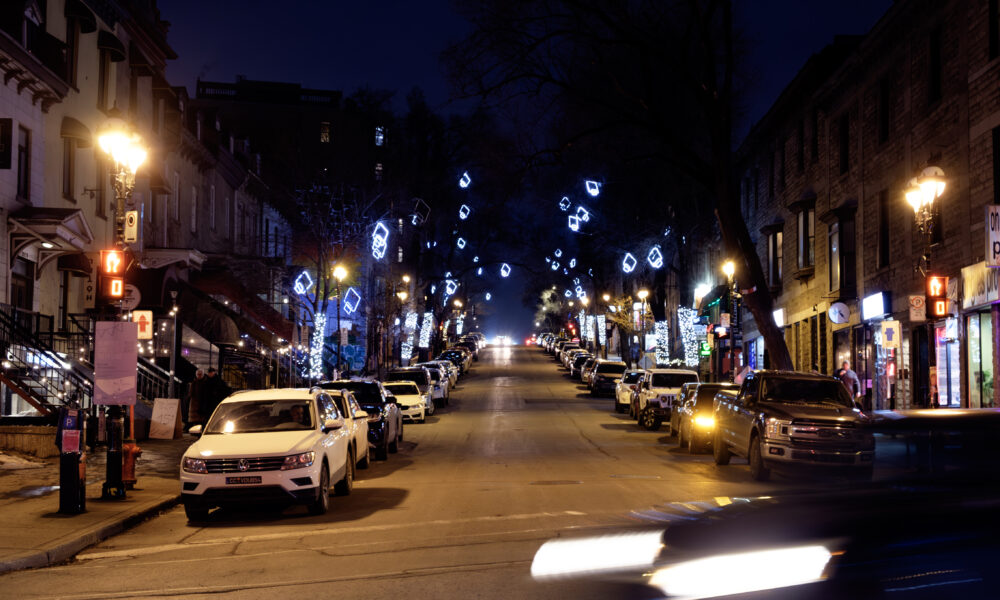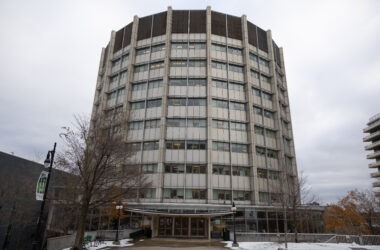In late January, the city of Montreal released a draft of a policy detailing plans designed to revitalize and strengthen Montreal’s nightlife. The policy was submitted to the Commission sur le développement économique et urbain et l’habitation—a committee that deals with urban planning, housing, and economic development in the city—for public consultations beginning on Feb. 13. The city’s Service du développement économique and Service de la culture began working on the policy in 2020 alongside community partners.
What are the policy’s objectives?
The draft policy has several objectives, including preserving residential peace through undisclosed sound diffusion practices and the promotion of cohabitation between businesses and their adjacent neighbourhoods. The policy is also designed to maintain a vibrant nightlife culture by improving workplace conditions. Finally, the policy will offer new business opportunities through the development of welcoming new districts that symbiotically support and benefit from previously established nightlife businesses.
The policy document also states that it is designed to cater to communities and demographics outside of nightlife regulars. For example, section 1.8 of the policy states that it will provide greater mobility for night-time workers through increased hours of public transportation, which many workers use to commute. The city believes that this will raise the appeal of these jobs by making them more accessible. This new policy would include a higher concentration of public services and public spaces open during odd hours intended to provide Montrealers with safe, populated places to be at all hours.
Public participation in drafting the policy
The policy prioritizes addressing the difficult balance between innovation and domestic stability. It includes open-ended questions directed at readers surrounding issues that need to be considered and addressed before the policy can be launched.
In an email to The Tribune, City of Montreal spokesperson Sara-Eve Tremblay emphasized the importance of public participation in the upcoming stages of development and the need to balance the contrasting needs of the Montreal population. Tremblay explained that the city will hold a public consultation about the project on Feb. 13 to allow the public to weigh in on the proposed policy.
“It will then be possible for everyone to ask questions and make comments during the question period. It will also be possible to give one’s opinion on the Policy on the Réalisons Montréal website, through the suggestion box or by filling out the survey, or simply by submitting a written opinion by e-mail, by mail or in person at the Service du greffe. Finally, all individuals or groups will be able to present their opinion to the commission during the public hearings.” Tremblay wrote.
Following the public consultation period, which will include a meeting and several revisions to the policy, the revised Policy will be presented to elected city representatives on May 13. Tremblay confirmed that the presented policy will then be adjusted as needed and adopted by elected officials before being set in motion.
Shortcomings of the policy
Will Straw, Professor of Urban Media Studies at McGill, wrote in an email to The Tribune that he believed some of Montreal’s biggest difficulties with the policy will be in promoting nightlife culture in the city.
“The biggest obstacle is changing attitudes, entrenched within city government and people’s minds, which say that nightlife is a series of problems to be controlled instead of opportunities to be seized. This involves convincing people that a certain amount of late-night noise and activity comes with living in active parts of the city […] noise complaints have been the greatest obstacle to nightlife in Montreal over the last decade. Fines and shutdowns have led to the closing of many nightlife venues,” Straw explained.
Straw noted that while he approved of the drafted policy at this stage of its development, he was less in favour of the focus on bar culture and, by extent, the sectors where there are more bars.
“I wish the question of nightlife was tied more directly to the problems of unhoused peoples, of people who work in hospitals and factories at night and other ‘night people.’ Still, I think the new proposals are a start and, after decades in which Montreal has bragged about its nightlife but done very little to support it, the night is finally getting some recognition,” Straw wrote.







